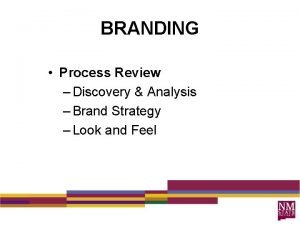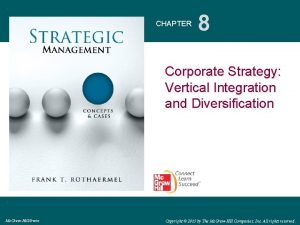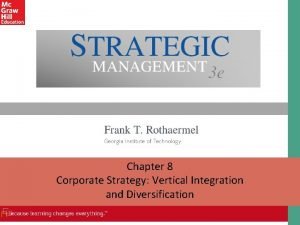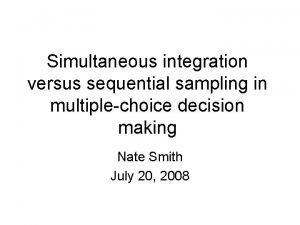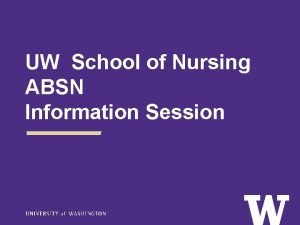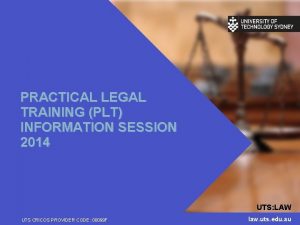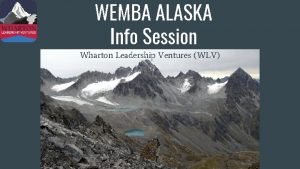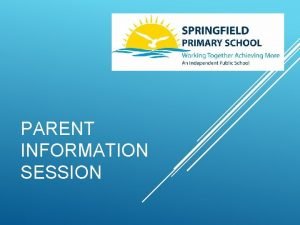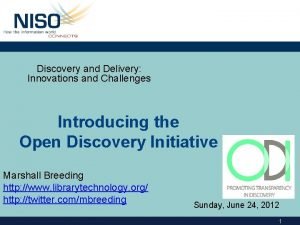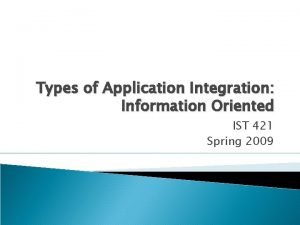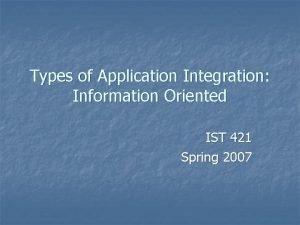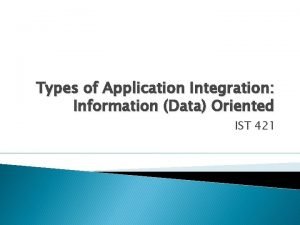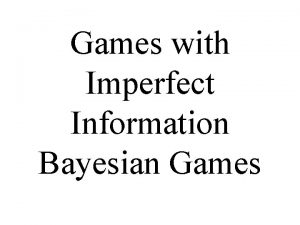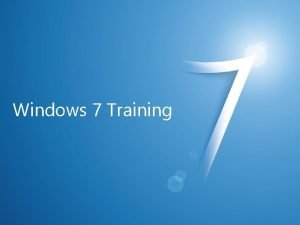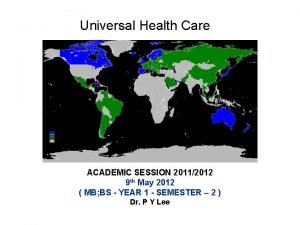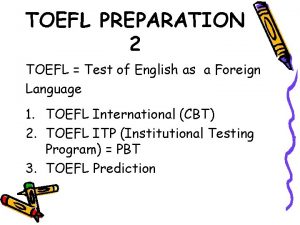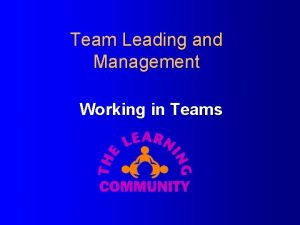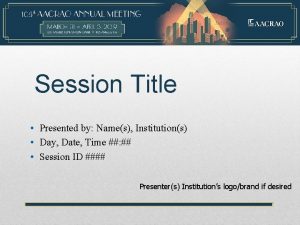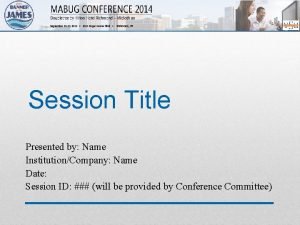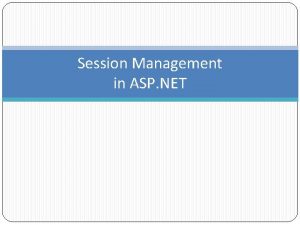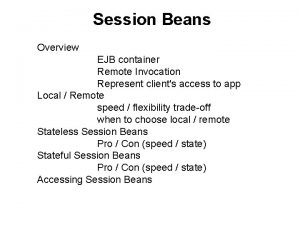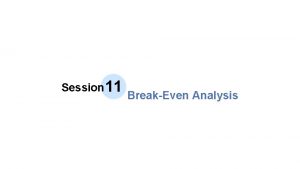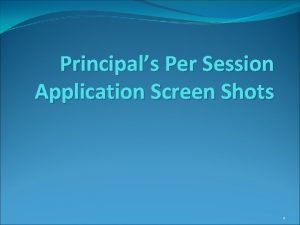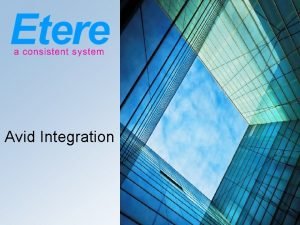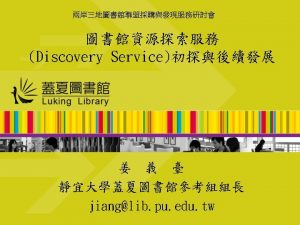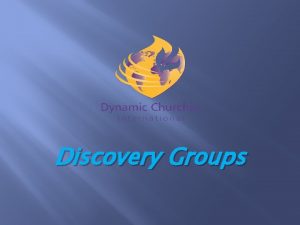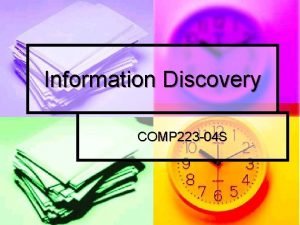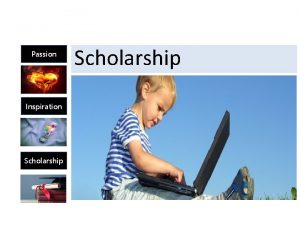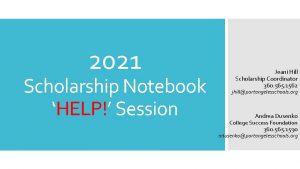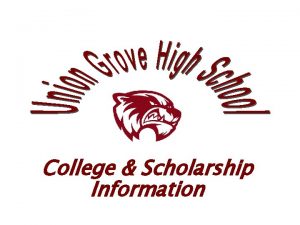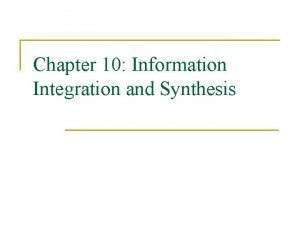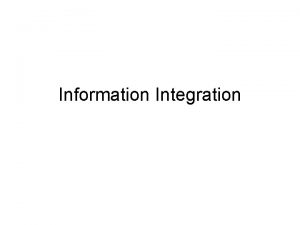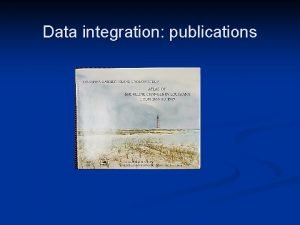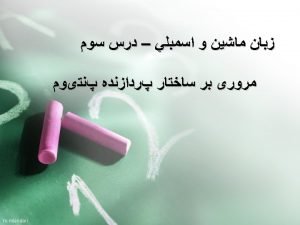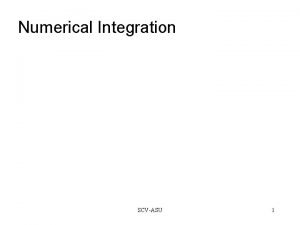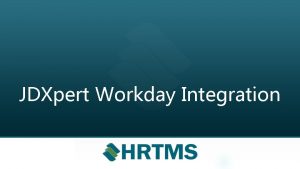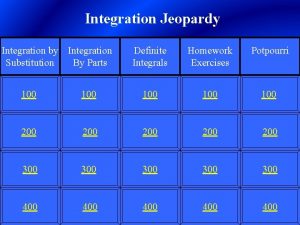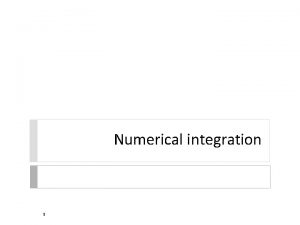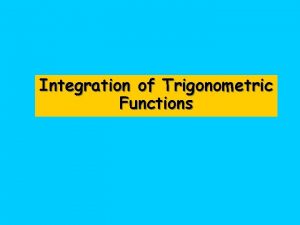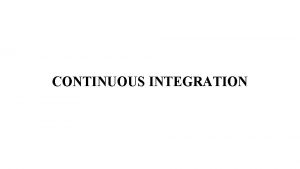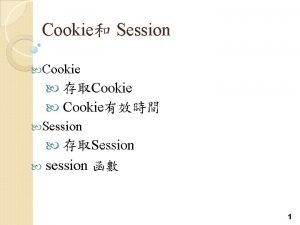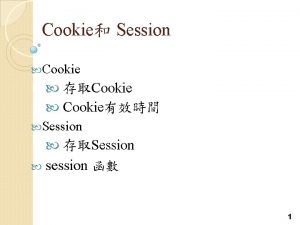Information Session Scholarship of Discovery Scholarship of Integration
























- Slides: 24

Information Session Scholarship of Discovery & Scholarship of Integration Cynthia Sprenger, Ph. D - Director of Medical Student Scholarship

AGENDA > Timelines > Tips for Finding a Mentor > Questions?

AGENDA > Timelines > Tips for Finding a Mentor > Questions?

sites. uw. edu/somcurr 2

1. SCHOLARSHIP OF DISCOVERY > Research in any topic related to medicine > You may choose any method: • Laboratory-based • Clinical research • Health services • Quality Improvement, any many others! > Every project must have a Faculty Mentor to support you > 30 -35 hours per week, 9 -week, Summer 2021 research project > You will present a poster of your work at the Medical Student III Poster Session in Fall 2021 at your Foundation Site.

2. SCHOLARSHIP OF INTEGRATION > Systematic Literature review focusing on an area in medicine > You will learn: • To systematically search medical databases and • To critically evaluate medical literature > 30 -35 hours per week, 9 -week, Summer 2021 research project > Ends with a paper: Rough Draft due September 2021, Final due October 2021 > Presenting at the Medical Student III Poster session is optional.

Timeline November 1 available Directory of Faculty Projects December 31 Deadline to contact Faculty Mentors Jan-Feb 2021 Work with Mentor on Project Proposal March 1, 2021 Project Proposal due June 2021 Required Librarian consultation (So. I only) Summer 2021 9 week period of Research time Fall 2021 Poster Presentation or Final Paper due

AGENDA > Timelines > Tips for Finding a Mentor > Questions?

Where to look 1. Check the III website for the Directory of Faculty projects 11/1/20 2. If you have a specific interest, look through faculty webpages to see who is doing research in that area 3. Look at the list of funded summer opportunities on the III website 4. Discuss with your Research Advisor Alaska: Holly Martinson, Ph. D, hamartinson@alaska. edu Idaho: Russell Baker, Ph. D, russellb@uidaho. edu Montana: Martin Teintze, Ph. D, mteintze@montana. edu Seattle: Cynthia Sprenger, Ph. D, cts 2501@uw. edu Spokane: Allison Lambert, MD, aalamb@uw. edu Wyoming: Emily Schmitt, Ph. D, eschmit 4@uwyo. edu

Where to look • If you are interested in working with a mentor who is not in the directory, please run it by your Research Advisor first! • If you are interested in an external program, please discuss with Dr. Sprenger first so we can adjust your timeline and find a backup.

Where to look Funded Summer Programs > UW Examples • Harborview’s Injury Prevention & Research Center (INSIGHT) • Medical Student Training in Aging Research (MSTAR-UW) • Division of Rheumatology Summer Research Program • Medical Student Addiction Research Training Program (Med. St. AR) Oct 28 th > National Examples • Medical Student Training in Aging Research (MSTAR-UCLA, UCSF) • Children’s Hospital Los Angeles—Summer Oncology Fellowship • Diabetes Research Centers—NIDDK Medical Student Research Program in Diabetes • Foundation for Anesthesia Education and Research (FAER)— Medical Student Anesthesia Research Fellowship Summer Program (MSARF) Originally Oct 31 st, now January 31, 2021

How to write that first email… 1. Address them respectfully by their title (i. e. Dear Dr. Sprenger). 2. Introduce yourself. For example, “I am a UW medical student seeking a summer project and see that we share an interest in…. . ”) 3. Explain why you are interested. Is this topic something you enjoy reading about? Do you have experience that could be useful? 4. Ask to meet. For example, “Could we meet to discuss this further? I am available by phone at xxx-xxxx or by Zoom” 5. If you are requesting to meet with faculty at another Foundations Site, let them know this and that you are able to move for the summer if needed. Consider requesting a meeting by Zoom with your phone number as a back-up.

Confirming your project • Once you have chosen a mentor, confirm that you will work together by email, even if you have agreed in person. • Next, set up meetings to develop your Project Proposal (due 3/1/21!). This proposal needs your mentor’s signature and a brief statement indicating their support of your summer plans. • Your Project Proposal should be 3 -4 pages, double spaced, 12 -point font, and clearly describe what you plan to do. • Over the summer term, set up a schedule of regular meetings to ensure your project stays on track to meet the poster or final paper requirement in the Fall.

Choosing a mentor vs Choosing a project • Your mentor is much more important than the actual project. • Choose a mentor who is: > Capable – Have they done work in this area before? Or are they expecting you to learn a new computing program to complete an analysis for them that they don’t know how to do (red flag!) > Available – Are they easy to work with? Or is it difficult to even get a response by email? They need to be able to meet with you at least weekly over the summer. > Engaged – you want someone who shows interest and enthusiasm for your development

Choosing a mentor vs Choosing a project • Start broad! If your interest is too specific, it can be difficult to find a good project. Think about what you would like to learn more about. • Choose a project that is: > Feasible – You only have 9 weeks to do this work. Is there an end point that is achievable before the end of the summer? > Well planned – Will they have everything prepped so that you are ready to get started in the summer? Is the IRB or IACUC protocol in place? Are there risks to obtaining the data? > Has a good mentor!

Practice Question • You are considering going into Orthopedic Surgery and want to use this summer to help in this process. Do you: a. Choose a project that requires many hours of chart reviewing for a mentor that never replies to your emails (they are busy!) but is famous in the field? b. Choose a project in a biomechanics laboratory working with a physiology professor on the effect of a lower body exoskeleton on the hip and knee mechanics of soldiers c. Choose a literature review on the intent of architectural design of hospitals on patient healing (you dabbled in architecture in college)

Practice Question a. Choose a project that requires many hours of chart reviewing for a mentor that never replies your emails (they are busy!) but is famous in the field? - This project does not have a mentor! - A letter from a Faculty Mentor who cannot say anything meaningful about you does not have any value.

Practice Question b. Choose a project in a biomechanics laboratory working with a physiology professor on the effect of a lower body exoskeleton on the hip and knee mechanics of soldiers. - Meaningful work in a field related to your future specialty is more valuable than busy work in that specialty. - A letter from a Faculty Mentor who knows you well and the work you accomplished carries more weight than anyone who cannot say much about you.

Practice Question c. Choose a literature review on the intent of architectural design of hospitals on patient healing (you dabbled in architecture in college) - Following your interests makes you interesting (both to yourself and to residency selection committees) and happier. - If you decide after 3 rd year that you really do want to do a competitive specialty, you can sign up for a 6 -8 week research elective over the summer to obtain additional experience.

WWAMI Career Advisors Questions? Contact Career Advising medadv@uw. edu Spokane and Idaho: Tonja Brown Olympic College, Alaska and Montana: Linh Ngo Cascade College and Wyoming: Sarah Thomson

Career Advising Data Sources to Review > UWSOM Career Advisors FAQ > UW Specialty Advisors rate experiences by importance: summer research, RUOP, or other experiences in an underserved community > NRMP Program Director Survey Factors & importance rating by specialty: research, volunteer/extracurricular experiences, etc. > NRMP Charting Outcomes in the Match Summary statistics for applicants by specialty: research and volunteer experiences, etc. Questions? medadv@uw. edu

Disclaimer: Info taken from 2020 UWSOM Career Advisors FAQ and NRMP Charting Outcomes in the Match. Always speak with Departmental Specialty Advisors regarding the role of research by specialty. Research Focus in the Specialties Requires research > Cardiothoracic Surgery > Dermatology > Interventional Radiology > Neurological Surgery > Ophthalmology > Orthopaedics > May encourage optional research - depends on applicant profile Typically does not require research > Family Medicine > Internal Medicine > Medical Genetics > Medical Pediatrics > Psychiatry > Anesthesiology > Diagnostic Radiology > Emergency Medicine > Obstetrics. Gynecology Otolaryngology > Surgery > Plastic Surgery Research is helpful, but not required > Radiation Oncology > Neurology > Vascular Surgery > Pathology > Urology > Physical Medicine & Rehabilitation

WWAMI Career Advisors Applying to competitive national summer research programs? Need Assistance with your CV? Attend A Group CV Review Session! October 30, 12: 00 -12: 30 pm PDT November 6, 12: 00 -12: 30 pm PDT https: //go. oncehub. com/CVReview. Group. Session/ *Before attending, review the CV website & watch the 3 -part CV video series: https: //education. uwmedicine. org/student-affairs/career-advising 3/year 4/residency-applications/curriculum-vitae/

AGENDA > Timelines > Tips for Finding a Mentor > Questions?
 Brand review process
Brand review process Forward integration and backward integration
Forward integration and backward integration Horizontal integration
Horizontal integration Integration
Integration Alice porter murray
Alice porter murray Absn uw
Absn uw Uts plt
Uts plt Wemba wharton
Wemba wharton Parent information session
Parent information session Information discovery and delivery
Information discovery and delivery Portal oriented approach
Portal oriented approach Information oriented
Information oriented Types of application integration
Types of application integration Imperfect vs incomplete information
Imperfect vs incomplete information Windows 7 compatibility center
Windows 7 compatibility center Welcome to new session 2020-21
Welcome to new session 2020-21 Session
Session Skill 24: anticipate the questions
Skill 24: anticipate the questions Team norming session
Team norming session 6 session name
6 session name Session name
Session name Asp.net session management
Asp.net session management Stateful session bean life cycle
Stateful session bean life cycle Session break even
Session break even Per session form
Per session form
